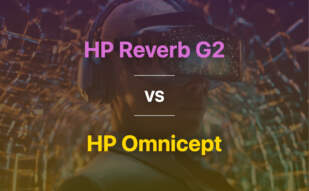Key Differences Between HP Reverb G2 and PSVR 2
- Operating Environment: PSVR 2 requires a PlayStation 5 while the HP Reverb G2 needs a Windows 10 connected PC with optimal components for high performance.
- Resolution: HP Reverb G2 offers a higher resolution (2160 x 2160 pixels per eye) than PSVR 2’s 2000 x 2040 pixels.
- Tracking Systems: Both utilize camera-based tracking but PSVR 2 boasts of eye-tracking capabilities whilst HP Reverb G2 maintains a four camera setup.
- Game Compatibility: HP Reverb G2 is compatible with SteamVR platform while PSVR 2 has a limited, PS5 exclusive game pool.
- Device Costs: At $599, HP Reverb G2 is marginally pricier than PSVR 2 priced at $550.
For professionals seeking high-resolution VR with platform flexibility and cost-effectiveness, the HP Reverb G2 outperforms the PSVR 2, which, although performing excellently on a PS5, has restricted compatibility and a limited game pool.
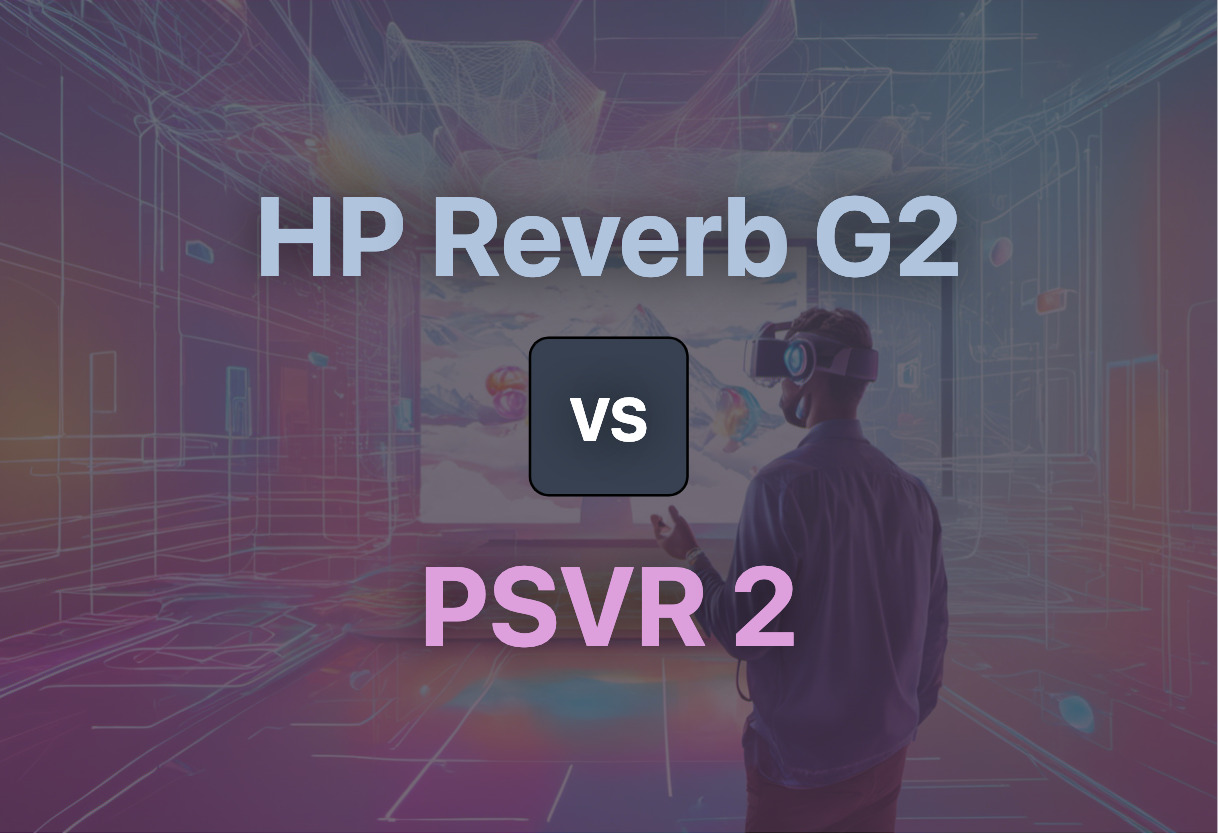
| Comparison | HP Reverb G2 | PSVR 2 |
|---|---|---|
| Price | $599 | $549.99/£529.99 |
| Compatibility | Windows 10 May 2019 update or later, DirectX 12 capable graphics, optimized for Intel Core i5 CPU or AMD Ryzen 5 equivalent and above, Nvidia GeForce 1080 or AMD Radeon 5700 GPU and above | PlayStation 5 |
| Resolution per Eye | 2,160 x 2,160 pixels at 90Hz | 2,000 x 2,040 pixels |
| Refresh Rate | 90 Hz | up to 120 Hz |
| Tracking System | Four cameras, no external sensors needed | Inside-out, eye-tracking |
| Software Platforms | Windows Mixed Reality platform, SteamVR ecosystem | PlayStation 5 |
| Set-up | DisplayPort and USB-C port | Single USB-C input |
| Audio System | Two speaker drivers on headband, no headphone jack | Includes earbuds |
| Controllers | Two improved motion controllers, powered by two AA batteries | Improved Sense Controllers with advanced haptic feedback and finger tracking |
| Additional Features | 67 watts fast charging, $200 discount on trade-in of any device, Android updates and security patches support | Supports HDR, streams user view to TV, offers dedicated VR exclusives |
| Limitations | Lack of wireless charging, performance influenced by the power of the PC used to run VR software, occasional tracking hiccups observed | Prohibitive pricing, demands PlayStation 5 for usage, limited games, non-backward compatibility with previous PSVR titles, batteries run out quickly |
What Is HP Reverb G2 and Who’s It For?
Propelling you into immersive VR with its high-resolution visuals, the HP Reverb G2 is a consumer virtual reality headset, designed primarily for professional usage, yet suitable for any tech enthusiast. Competing stoutly against contenders like the HTC Vive Pro, Vive Focus, Oculus Quest 2, and the Valve Index, this $599 VR heavyweight is a revamped version that mixes advanced tech with improved comfort.
Suited for Windows users, this system is ideal for consumers looking to experience sharp imagery and streamlined tracking capabilities, whether for leisure or professional purposes. It’s also an affordable option for studios envisioning VR-based project developments.
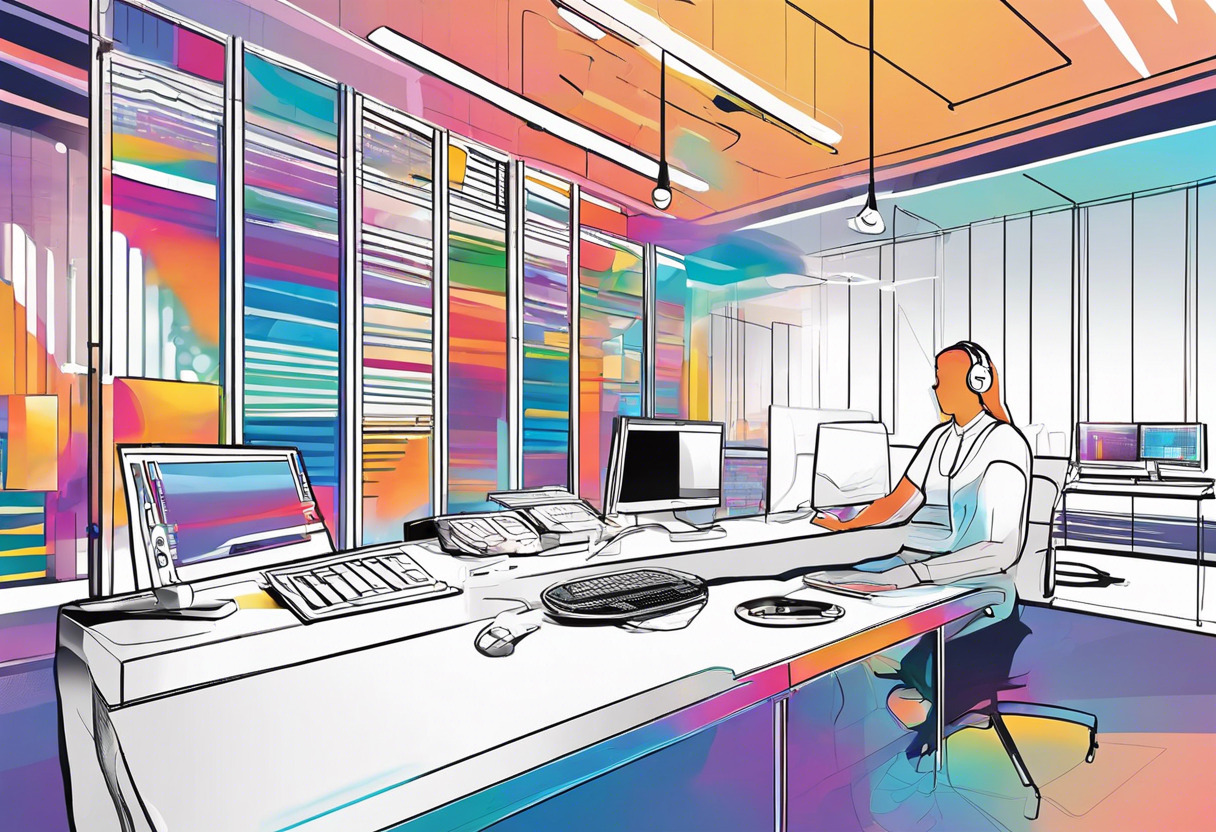
Pros of HP Reverb G2
- Competitively priced, High-resolution VR package.
- Four-camera setup for enhanced tracking capabilities.
- Comfortable, foam-covered face mask
- Multiple-system compatibility offers a diverse user experience.
Cons of HP Reverb G2
- Occasional motion tracking hiccups.
- Long setup process involving DisplayPort and USB-C.
- Device design might be uncomfortable due to the size of the camera module.
- Lacks flexibility of Oculus Quest 2 and superior motion-tracking of Valve Index.
What Is PSVR 2 and Who’s It For?
Aimed primarily at PlayStation aficionados, PSVR 2 is a premium virtual reality headset designed for the PlayStation 5. It’s a substantial step up from its predecessor, the PSVR 1, boasting an attractive hardware upgrade that completely eradicates the need for external cameras and processor boxes.
Despite the high cost, this intuitive VR system is intended for gamers who aspire for a leap in their gaming experiences. Offering 4K visuals, eye-tracking, and a refresh rate up to 120Hz, it also caters to technophiles who crave the newest and most advanced gear.
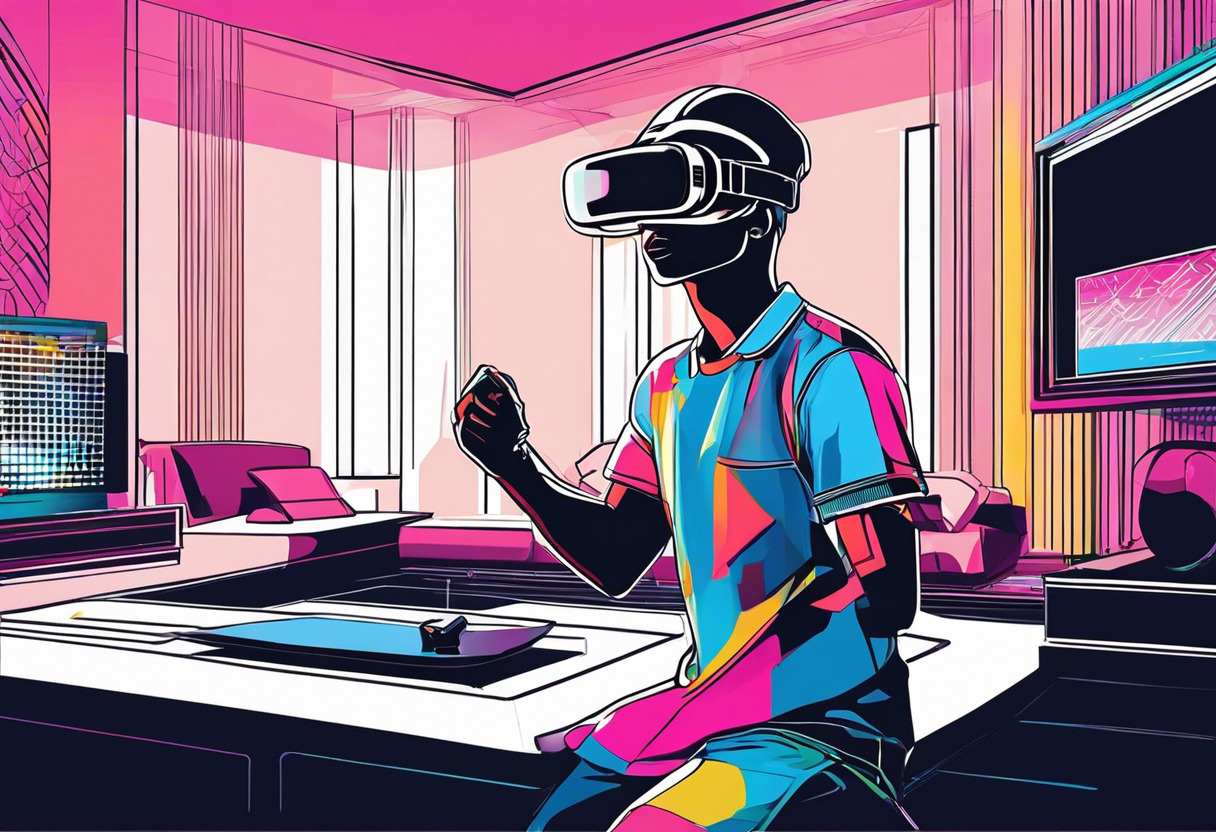
Pros of PSVR 2
- Tracks eye movements for an immersive VR experience.
- Sturdily designed headset with movable lens module for enhanced comfort.
- Supports HDR for a more vivid and immersive display.
- Advanced Sense Controllers with accurate finger tracking.
Cons of PSVR 2
- High price point, which does not include the required PlayStation 5 console.
- Quickly depleting controller batteries.
- Limited games available and not backward compatible with previous PSVR titles.
- Non-compatibility with non-upgraded PSVR 1 games may inconvenience existing users.
HP Reverb G2 vs PSVR 2: Pricing
HP Reverb G2 and PSVR 2 both demand significant investments at $599 and $550, respectively, positioning themselves as high-quality choices in the VR headset market.
HP Reverb G2
The HP Reverb G2 comes with a $599 price tag, which is less than its premium competitors like Valve Index ($999) and HTC Vive Pro 2 ($799), but pricier than the budget option, Oculus Quest 2 ($299). The trade-in of any device can provide a $200 discount, with periodic offers for competitor solutions, explicitly mentioning Samsung and Google. The price seems competitive for a high-resolution VR package, albeit missing the flexibility and superior motion-tracking seen with Oculus Quest 2 and Valve Index.
PSVR 2
The PSVR 2 is priced at $550, and this doesn’t include the prerequisite PlayStation 5 console. While the PSVR2 significantly improves upon its predecessor, its pricing is prohibitive for some—costing more than the PS5 console itself. Extra costs for accessories like the Sense Controller Charging Dock and Pulse Headset increase the investment further, despite a limited pool of games when compared to Steam or Meta.
HP Reverb G2 vs PSVR 2: The Ultimate Verdict
Unraveling the two contrary yet exceptional technologies, the final call comes down to your specific needs and constraints.
Professional Users and Developers
HP Reverb G2 is arguably the top pick. Suited for both professional and consumer usage, its sharp imagery and camera-based motion tracking prove highly beneficial, along with a pleasing user experience, thanks to its compatibility with Windows Mixed Reality and SteamVR platforms. Auditory experience is immersive due to the speaker drivers.
A note of caution: occasional tracking hiccups could be a minor inconvenience.
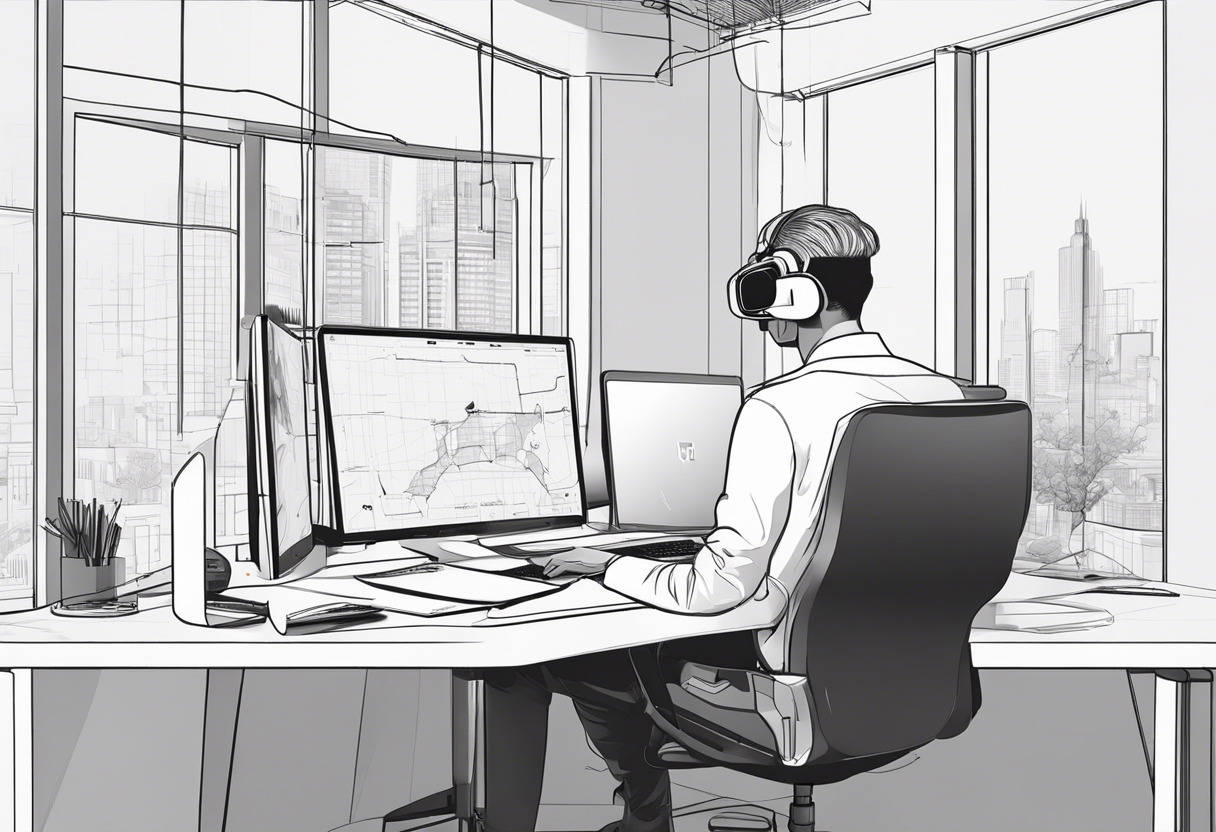
Hardcore Gamers
For those loyal to the PlayStation universe, the PSVR 2 is a no-brainer. Including 4K visuals, robust Sense Controllers, and exclusive VR titles, immersion is unmatched. Despite its high price, the exceptional display and feedback more than justify the investment.
Need to remember: Batteries run out quickly, and a PS5 is a prerequisite.
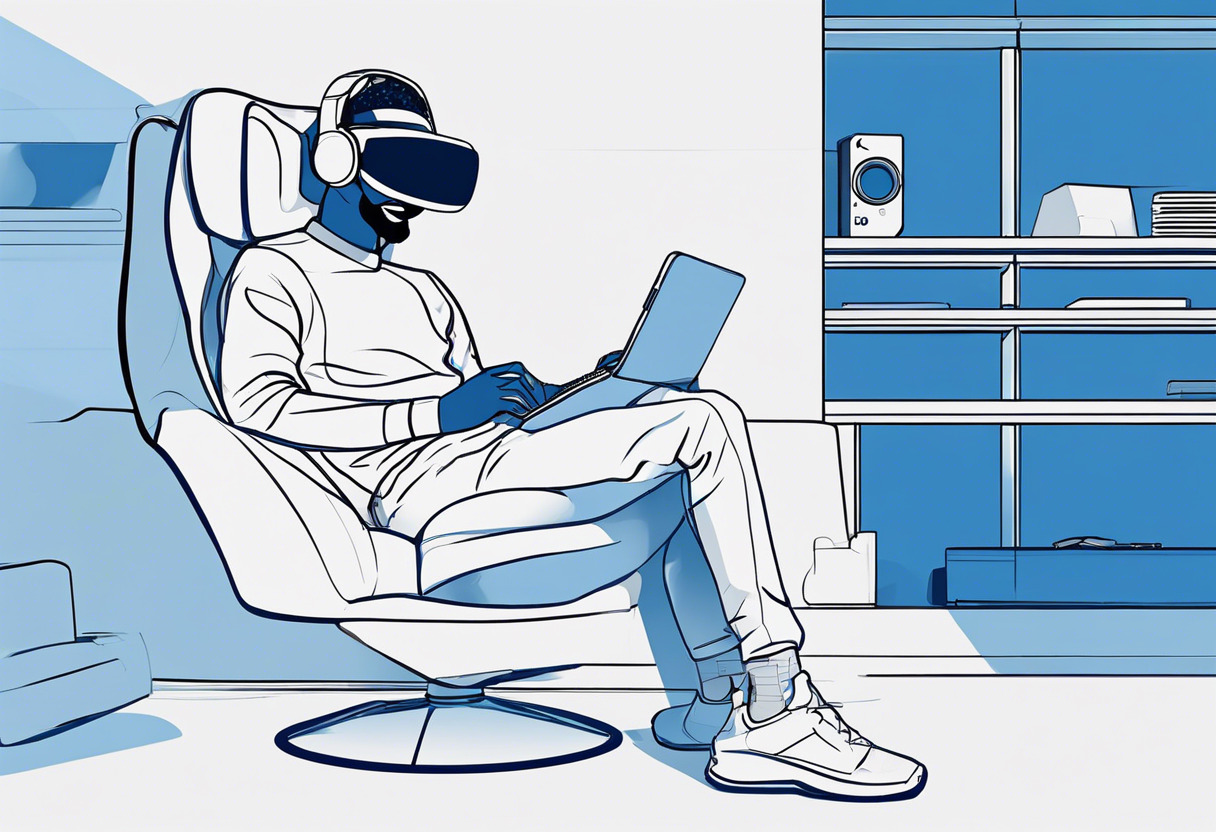
Price-Sensitive Consumers
The HP Reverb G2 carves out a clear advantage. Its pricing matches the resolution offer, especially compared to the significantly more expensive PSVR 2. Add to this the potential $200 discount for trading in any device and the cost proposition improves further.
However: It must be stressed that performance is highly contingent on a powerful PC.
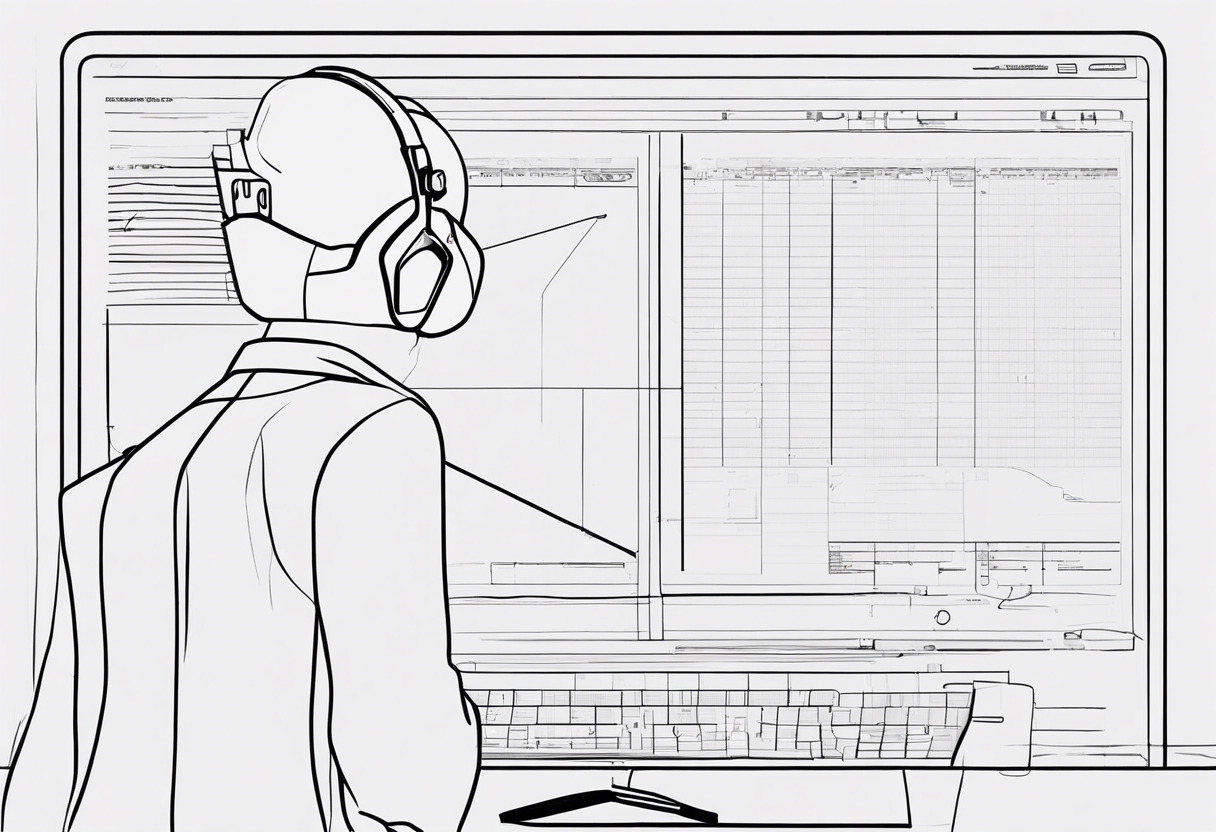
The match-up between HP Reverb G2 and PSVR 2 is fierce. For skilled developers and professionals with powerful rigs, the dual platform-support and sharp display of HP’s offering outshine. Avid PlayStation gamers, undeterred by cost, might lean towards PSVR 2’s all-around immersive gaming experience, despite a narrow games library. Cost-conscious consumers, juggling performance and budget, would find the HP Reverb G2 fits their needs better.
Tiffany Brise
Content writer @ Aircada, patiently awaiting a consumer AR headset that doesn’t suck.



